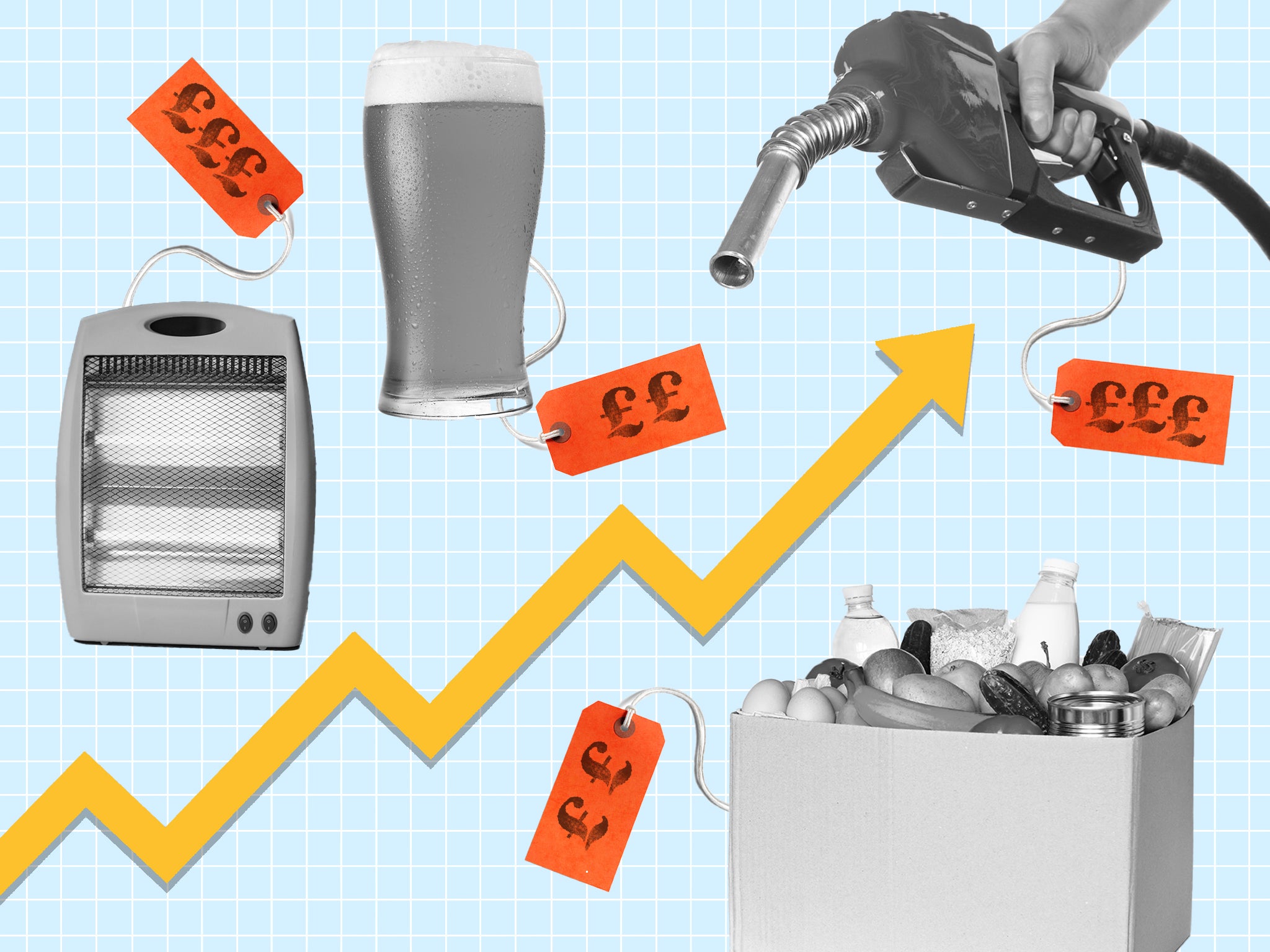
As the rising cost of living continues to hit most UK households and inflation peaks at a 50-year high, many people are worrying about their finances and may begin to see their mental health and general wellbeing suffer as a result.
The increasing price of energy bills, housing prices and everyday expenses like food and petrol has already left almost four in 10 people (38 per cent) worried about their finances and more than half (51 per cent) feeling less control over their mental health, according to research by University College London.
Amidst the ongoing financial crisis, looking after your mental health remains more important than ever in helping people to feel less overwhelmed.
What is the cost of living crisis?
Akanksha Nath, head of partnerships at credit-score provider Credit Karma, defined the current financial crisis in simpler terms for those who may be confused amongst the jargon. She said: “Essential costs, in terms of housing, bills, and taxation are going up at an unprecedented rate, often more rapidly than people’s wages are growing.
“This is largely down to the rising cost of energy as supply issues raise wholesale rates and force up prices. Not only can this make gas, electricity and filling up a car more expensive for people, but it has an impact on pretty much everything we buy as the supply chain becomes more costly.”
For the average person in Britain, this means they will have less disposable income at the end of each month meaning they’ll have to cut down on spending. Some people may even have to resort to borrowing money, with Credit Karma finding out that £5bn has been borrowed on credit cards this year so far.

Learn more about your financial situation
To help people become more finically savvy amidst the crisis in order to look after their mental health in the long-run, Ms Nath says that “knowledge is power.”
“The first step to becoming better with money is to engage with your finances. Having a good overview of where your money goes each month - including any lines of credit and outstanding debts - can help to start identifying where savings can be made,” she said.
“Take advantage of the tools out there that make money management more straightforward. Use the features available on your online banking to help with budgeting, or free money apps like Credit Karma to keep track of the best deals and provide you information based on your credit score if you do need to borrow money.”
Greg Marsh, founder and CEO of cost-of-living consultant platform Nous.co, shared a similar sentiment. He said: “A lot of households are going to find the next 12 months extremely challenging. The key thing is to get on top of the details so you know what’s happening, rather than being blindsided by bills or burying your head in the sand.”
His platform provides people with personalised forecasts of their household spending and how those costs will change over time and his advice is to be realistic about your financial situation. He encourages people to make a household expenses plan, save money on necessities by shopping around, and don’t be scared to ask for help.
Reach out if you need help
“Talk to friends and family members to find out how they are coping,” Mr Marsh continued, “steel yourself to ask for a pay-rise and, if you’re really struggling, don’t be afraid to seek professional support. We’ve found that mainly people seek help only when it has become too late - far better to put a proactive plan in place earlier rather than when things have gotten really bad.”
Ms Nath from Credit Karma also recommended researching government schemes – such as their relief scheme offering £350 per household to help with bills - contacting your energy providers for a better deal and speaking to independent charities, such as StepChange and the National Debtline, who can offer help and support to those worried about money.

Don’t overwork yourself
Dr Nikki Ramskill, a GP and women’s money coach at TheFemaleMoneyDoctor.com, sees how mental health and money often go hand-in-hand.
She said: “Worrying too much about money can lead to anxiety, depression and physical health conditions like migraines or irritable bowel syndrome. Worsening symptoms can then in turn make it harder to think about money and solving the problems you may find yourself in.
“You may need time off work to cope which further compounds the issue and adding into this chronic illnesses or pre-existing mental health conditions, it can generate a perfect storm that can be difficult to escape from. It’s a vicious cycle.”
But, Dr Ramskill warned people against over-working themselves despite money crises as this could lead to burnout. She said: “With the cost of living going up, it can be tempting to work all hours to have ‘enough’. However, lack of sleep, not exercising, not taking holidays and not having down time all impacts on our ability to cope with the day-to-day which this further compounds the issue and weakens our resilience in a time of crisis.
“Now more than ever, we must take care of our mental well-being over all else even when it feels counterintuitive to do so.”
Take small steps
Dr Ramskill suggested small, practical steps like switching off from news about the financial crisis, managing your monthly spending through cutting out things you can live without and reviewing necessary payments, such as bills or insurance, to see if you can get a better deal elsewhere.
Kayleigh Frost, head of clinical support at workplace wellbeing provider Health Assured, has similar advice for those needing mental health help amidst money worries.
“Many people bury their head in the sand and find it easier to ignore a problem, especially when it comes to finances,” she said. “When problems are ignored, they can often escalate quickly. It’s important to be honest about your health and wellbeing and ask for help.
“Facing up to an issue can be extremely stressful but, in the end, dealing with something head on is always the best way. Make a list of your incomings and outgoings each month, plan activities that are free or have little cost, keep active and moving, focus on a good sleep routine and partake in self-care. Do small things that bring you pleasure and don’t need to cost anything.”
Dr Ramskill added: “Don’t wait – take action, speak up and tell people how you are feeling. The saying ‘a problem shared is a problem halved’ is true. The quicker you speak up, the quicker you can get help.”







